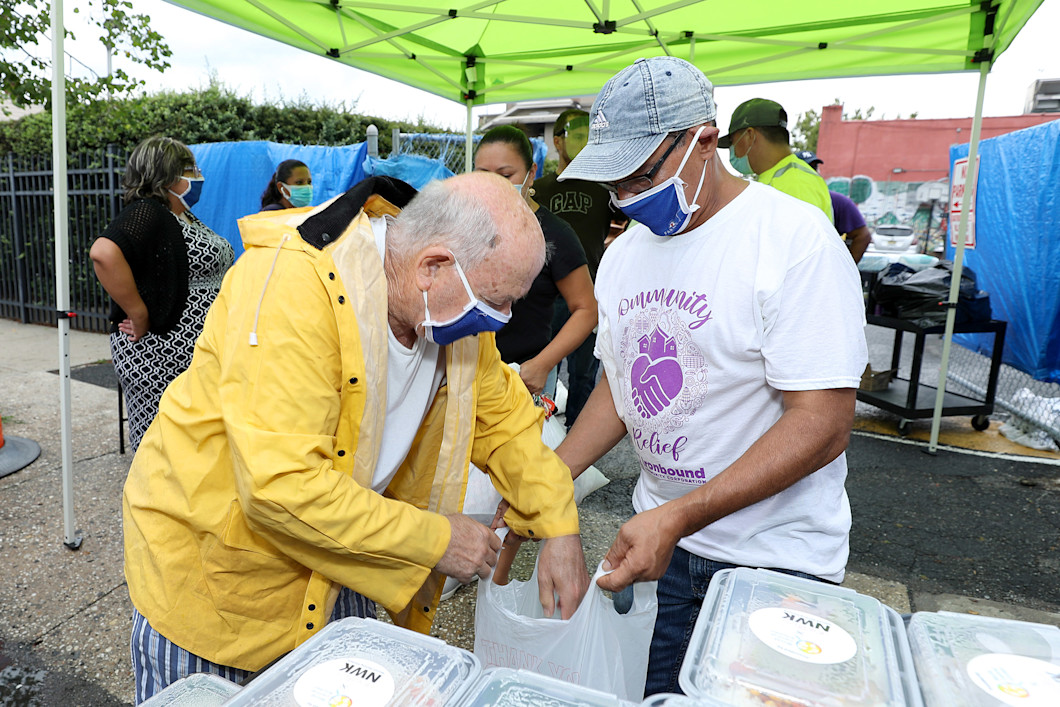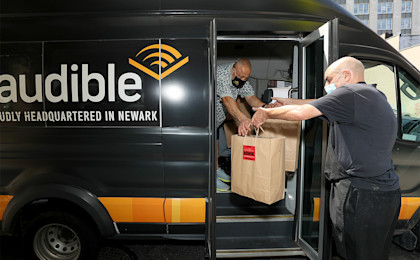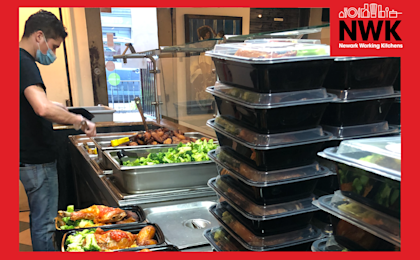Businesses Can Help Local Restaurants Survive and Spur Recovery

Since moving its global headquarters to Newark in 2007, Audible has pursued creating urban equality as a defining purpose. This commitment is articulated by our founder and Executive Chairman Don Katz in our People Principles, the core philosophies that inform and inspire our days. Newark Working Kitchens (NWK) is one recent effort to identify innovative solutions to systemic issues. Funded and led by Audible, NWK enables Newark restaurants to stay open and feed vulnerable neighbors with a model that can be replicated almost anywhere—and needs to be replicated now, urges a recent opinion piece for Fortune magazine written by Katz and chef Marcus Samuelsson, who supports our NWK work.
Newark Working Kitchens is a model that can work in any city with a committed base of corporate anchors willing to invest in smaller businesses.
As of last December, the piece reports, seventeen percent of restaurants had closed permanently or long-term due to the pandemic, resulting in economic fallout that portends a worsening food insecurity for millions of Americans, including children. Katz and Samuelsson fear this will mean irreparable damage, especially in vulnerable cities, unless restaurants receive “ongoing support from their communities—not just customers but, crucially, large local employers focusing their investment capacities beyond philanthropy.”
Katz and Samuelsson point to examples of enormous positive impacts that some large businesses have already made, and state that companies looking to make similarly meaningful impacts can do so by considering how programs like NWK and World Central Kitchen, which helps operate NWK, “can sustain jobs, businesses, and lives in their own communities.”
Read what Katz and Samuelsson have to say about this urgent and necessary work.


